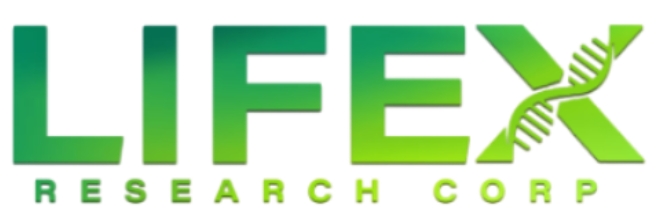Atlanta, GA - November 10, 2025 - The workplace is evolving at an unprecedented pace, and two key players are leading the charge: artificial intelligence (AI) and metadata. These technologies are not just buzzwords; they hold the potential to reshape how employers think about benefits in 2026 and beyond.
As organizations strive for a competitive edge, adapting to new tools has become essential. Employers can harness AI’s analytical power alongside rich datasets to better understand employee needs, customize offerings, and create a more engaging work environment.
Benefits of Using AI and Metadata for Employers
Through the integration of advanced data analytics, epidemiology, and public health strategies, LifeX Research is transforming healthcare delivery. It utilizes these diverse disciplines to develop and implement targeted interventions based on solid evidence, customized for the specific needs of varying populations.
This progressive approach moves healthcare away from a reactive system and towards a proactive model, empowering both individuals and communities to attain optimal health outcomes. The integration of AI and metadata offers compelling advantages for employers. By harnessing data-driven insights, organizations can streamline their benefits offerings.
AI technology helps in identifying the needs and preferences of employees. This allows for a more tailored approach to benefit packages that resonate with diverse workforces. Automation reduces administrative burdens. Employers can focus on strategic initiatives rather than getting bogged down by paperwork.
Enhanced decision-making is another significant benefit. With analytics at their fingertips, leaders make informed choices about which benefits to expand or eliminate. Cost efficiency also plays a key role. Predictive models help anticipate future health expenses, enabling smarter budget allocations.
Incorporating AI transforms traditional practices into dynamic solutions that meet evolving employee expectations while promoting workplace satisfaction and loyalty.
Enhancing Employee Experience with AI and Metadata
AI and metadata are transforming the employee experience in remarkable ways. Companies can now tailor benefits to individual needs, creating a more personalized approach that resonates with employees.
Through advanced algorithms, AI analyzes vast datasets to uncover patterns in employee preferences and behaviors. This insight allows employers to design offerings that truly matter to their workforce.
Consider wellness programs as an example. With AI-driven analytics, organizations can identify which health initiatives engage employees most effectively. They can then focus resources on those areas, enhancing overall satisfaction.
Metadata enhances communication channels within companies. Employees receive timely information relevant to their specific roles or concerns while feeling more connected with their organization’s mission.
The synergy of AI and metadata ensures that every touchpoint is meaningful, fostering an environment where employees feel valued and understood. This shift not only improves morale but also drives productivity across the board.
Predictive Analytics and Customized Benefits
Predictive analytics is changing the game for employer benefits. By analyzing employee data, companies can anticipate needs before they arise. This proactive approach enables businesses to tailor benefits packages uniquely suited to their workforce.
Customized benefits enhance satisfaction and retention rates. Employees feel valued when offerings align with their personal circumstances, whether it’s family planning or wellness programs.
Data-driven insights allow employers to identify trends in usage and preferences swiftly. They can adjust plans accordingly, ensuring relevance throughout the year. Predictive models enable organizations to forecast potential health issues among employees. Addressing these proactively leads not only to better outcomes but also reduces costs associated with healthcare claims over time.
As companies harness this technology, engagement levels soar. Workers are more likely to utilize benefits that resonate with them personally - creating a win-win scenario for both parties involved.
Addressing Challenges and Concerns
As AI and metadata gain traction in shaping employer benefits, challenges inevitably arise. One primary concern is data privacy. Employees may feel uneasy about how their personal information is used and stored.
Employers must prioritize transparency to build trust. Clear communication about what data is collected and its purpose can alleviate fears. Another challenge lies in ensuring equitable access to benefits tailored by AI insights.
Companies need strategies that guarantee all employees benefit from personalized offerings without bias or exclusion. Training for HR teams also plays a crucial role. Understanding the nuances of AI tools ensures that decisions are informed rather than automated blindly.
Ongoing evaluation of these technologies will be essential. Regularly assessing outcomes helps identify areas needing adjustment, thus maintaining employee satisfaction as workplace dynamics evolve.
The Future of Employer Benefits with AI and Metadata
The landscape of employer benefits is quickly evolving, thanks to AI and metadata. With these technologies, companies can tailor their offerings to meet the diverse needs of their workforce. Imagine a future where health plans are personalized based on individual employee data.
This means employees could receive customized options that fit their lifestyles, preferences, and even health conditions. AI-driven solutions will streamline administrative tasks as well. Employers can automate processes like enrollment and claims management, freeing up HR teams for more strategic initiatives.
Real-time feedback loops through metadata will allow organizations to adjust benefits dynamically. As the workplace continues to change, staying adaptable becomes essential for attracting top talent.
Employers who embrace this technological shift may find themselves not only improving satisfaction but also enhancing retention rates among employees eager for tailored support in an ever-evolving job market.
Final Thoughts
The landscape of employer benefits is evolving. With AI and metadata at the forefront, companies are beginning to personalize employee offerings like never before. These technologies present numerous opportunities to enhance operational efficiency and improve employee satisfaction.
As employers leverage LifeX Research's latest health analytics for open enrollment season, they pave the way for data-driven decisions that align with individual needs. The shift towards predictive analytics means that organizations can anticipate requirements, creating tailored benefits packages that resonate with employees on a personal level.
It’s essential to navigate the challenges carefully. Privacy concerns and data security must remain a priority as employers adopt these advanced tools. Transparency in how data is used will foster trust within the workforce.
Looking ahead to 2026, it's clear that AI and metadata will play an integral role in shaping employer benefits. Companies willing to adapt will not only stay competitive but also cultivate a more engaged and satisfied workforce ready for the future challenges ahead.
Embracing this technological revolution could very well define success in attracting top talent while retaining existing employees who value personalized support systems tailored around their specific needs.
For more information, visit: https://lifexresearch.com/

Media Contact
Company Name: LifeX Research Corp.
Contact Person: Media Relations
Email: Send Email
City: Atlanta
State: GA
Country: United States
Website: lifexresearch.com/






